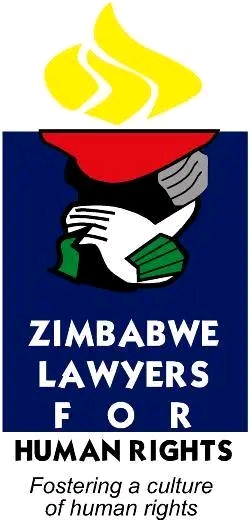A country with vast natural resources and a resilient people, it is an irony bordering on tragedy that many Zimbabweans today find themselves living without the most basic necessities like clean drinking water, fresh air, safe roads and protection from reckless drivers. Adding insult to injury, laws are being implemented willy-nilly often in ways that stifle freedoms, while those in power fail to deliver on their most fundamental obligations.
The Constitution of Zimbabwe is clear. It is the duty of the national government, local authorities and the Zimbabwe Republic Police (ZRP) to protect and serve the people. This includes ensuring access to safe water, maintaining infrastructure, protecting the environment and enforcing road safety. Yet the reality on the ground tells a different story one of neglect, broken promises and selective law enforcement.
Across the country, taps run dry, forcing families to rely on unsafe water sources. Burst sewage pipes in urban centres leave residents exposed to disease. The air in industrial zones and crowded cities is choked with fumes from ageing vehicles and unregulated factories. Roads, both urban and rural are riddled with potholes large enough to damage vehicles and cause accidents. Drivers who speed, overload vehicles or drive unroadworthy cars seem to operate with impunity, while honest citizens are harassed at roadblocks for minor infractions.
What Zimbabweans often forget is that the Constitution gives them the right to demand these services and to take legal action when they are not provided. Section 77 guarantees the right to safe, clean and potable water. Section 73 promises every person the right to an environment that is not harmful to their health or well-being. Section 29 outlines the duty of the state to take measures to ensure the provision of basic health services. And Section 327 allows the courts to hold public institutions accountable for failing to meet their obligations.
Lawsuits are not a foreign concept in functional democracies. In South Africa, India and Kenya, citizens have successfully sued governments and local authorities to compel the delivery of basic services. In Zimbabwe, however, the culture of legal accountability is weak partly due to fear, partly due to lack of awareness and partly due to mistrust in the judicial system. But without pressure from the public, the cycle of neglect will continue.
citizen must use the legal tools available to them. Civil society groups, lawyers and activists should lead a coordinated push for strategic litigation. Class action suits against councils that fail to provide water, petitions against the ZRP for failing to enforce traffic laws fairly and environmental lawsuits against polluters should become part of the national conversation.
When leaders know they can be dragged to court, sued and embarrassed publicly, they are more likely to act. Silence and endurance may have been survival strategies in the past, but in today’s Zimbabwe, they amount to surrender.
Zimbabweans must remember, the Constitution is not a decorative document it is a shield and a sword. It is time to wield it.
Engineer Jacob Kudzayi Mutisi
+263772278161

https://edm.parliament.uk/early-day-motion/63719/justice-and-redress-in-the-case-of-paul-westwood
Section 69 (2) of the Zimbabwean Constitution states that: “In the determination of civil rights and obligations, every person has a right to a fair, speedy and public hearing within a reasonable time before an independent and impartial court, tribunal or other forum established by law.”
https://edm.parliament.uk/early-day-motion/47008/mr-paul-westwood-and-zimbabwe
I also understand that Mr Westwood’s case relates to property/business and not farming, therefore he is seeking compensation from Temba Mliswa, I would implore you to apply the same approach and standards to British nationals who have had their businesses seized unlawfully. Temba Mliswa improperly used the indigenisation law, for his own personal gain as well as claim he had Permission from you Mr President. He hid behind Didymus Mutasa his uncle to escape proper accountability.
I ask respectfully that you investigate this matter on behalf of Mr Westwood and his family who were loyal Permanent Residents of Zimbabwe, took a pride in their country but, regrettably, due to circumstances beyond their control were forced to leave.
As I’m sure you will appreciate, I wite with the full authority of Mr Westwood and trust that in the interests of justice and fairness you will pursue the matter on bchalf of him and his family. Despite everything that has happened Mr Westwood still talks in very positive terms about his life in Zimbabwe and his contribution to the local economy.
Thank you in anticipation of your support and assistance in dealing with this injustice which apparently has been kept secret from the many responsible members of the Zimbabwe Government
Yours sincerely,
Lindsay Roy (MP) House of COMMONS London and EU Parliament